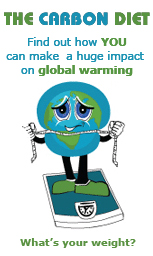Ask Ronit
 I Like Your Ponytail, A Story About Commitment
I Like Your Ponytail, A Story About Commitment
“I like your ponytail.” I said in a playful manner. “Ponytail?” he repeated in a thick French accent. There and then began the most extraordinary odyssey of my life.…
Avoid 90% of the Pesticides in Food, by Avoiding 12 Foods
Why should you care about pesticides in your food?For starters there may be as many as twenty pesticides on a single piece of fruit you eat.…
Dear Mrs. Black,It was January 1967 when this 11 year-old, frightened, little Israeli girl walked into your classroom for the first time. I had only arrived in the country two weeks before.…
With sex all around us, oozing out of our televisions, theaters, magazines, fashion, on the streets, one would think we are the most sexually informed, open and comfortable nation on the planet.”…
I’m sure by now you all have noticed the ongoing meltdown in the mortgage industry. The cause of this whole mess is a little bit complicated, rooted in both the structure of the mortgage industry, and human nature. I’ll try to explain both factors here in layman’s terms.…
Breaking old habits; Creating new Ones
We are mostly habitual beings. Webster defines habit as an acquired mode of behavior that has become nearly or completely involuntary.…
Navigation
NY Times
Study Suggests That, Unlike in the ’70s, Energy Lessons Will Last
By NY Times
Most of us remember the never ending lines at the gas stations in the 70's. The outcry by the public for alternative sources of energy Then just as quickly, all is forgotten, as lines disappeared and prices for gas dropped. We hear the same clamour today, yet according to The Cambridge Energy Research Associates, unlike the 70's, this time it will not go away. The difference today is that global warming is seen as a threat to political security, as well as the environment. Especially with the growing economies of China and India, cheap and reusable sources of energy are vital.
High Mercury Levels Are Found in Tuna Sushi
By NY Times
Tuna Sushi lovers are putting their health at risk, according to a New York Times sample study. The Times bought Tuna Sushi from several restaurants and stores around New York City and had it analyzed by a laboratory. The results yielded levels of mercury so hight that the Food and Drug Administration could take legal action to remove the fish from the market. High Mercury levels are particularly dangerous for children and pregnant women, but recent studies suggest they may also increase the risk for cardiovascular and neurological problems in healthy adults. read more »
City Council Passes Bill for Recycling of Plastic Bags
By NY Times
It is estimated that 86 billion plastic bags are used by Americans each year. According to environmental organizations these bags end up entangled in the stomachs of whales and sea turtles or buried in landfills where they last for 1,000 years. New York City council has just enacted the most broad measure to minimize the environmental impact of these bags. read more »
Digital Tools Help Users Save Energy
By NY Times
How would people react if given the means to closely monitor and adjust their electricity? The Pacific Northwest National Laboratory of the Energy Department suggested that if consumers were given digital tools to set temperatures and price preferences, the peak loads on utility grids could save up to 15% a year. The results of the experiment even surprised the Energy Department. How did the consumers react when given the choice between comfort and cost? How much could this save over a long period of time? read more »
Judge Imposes Stricter Rules on Navy to Protect Marine Life.
By NY Times
What is more important national security or protecting marine life? That seems to be the conflict between the Navy and environmentalists over the naval use of sonar off the California coast. Whales and dolphins exhibit disoriented and frantic behaviors during the navy's sonar training exercises. Judge Florence-Marie Cooper ordered the Navy to implement strict new safeguard to protect marine mammals by limiting their exercises to 12 nautical miles from shore. The navy is considering an appeal. read more »
China’s Turtles, Emblems of a Crisis
By NY Times
The saga of the last two Yangtze softs-hell turtles is symbolic of the threatening state of the wild life in China. The two remaining soft-shell turtles, respectfully 80 years old (female) and 100 years old (male) are our last hope for this specie.
Surveys of China's rich plant and animal life reveals a shocking and gloomy picture. Close to 40% of all mammal species, 70% of all nonflowering, and 86% of all flowering species are considered threatened. How has this come about and can it be rectified? read more »
India Finds Mutated DNA Where Water Is Toxic
By NY Times
Toxic chemicals from fertilizers and pesticides are seeping into the groundwater in Punjab, India's grain belt, and may be causing genetic mutations in the population. Higher rates of Cancer and other abnormalities, including premature aging in children living in the surrounding area are being observed. A two year study commissioned by the Punjab Pollution Control Board found mutated DNA in the blood samples of 65% of the people tested.
Divers Who Jump in to Take the Mystery Out of City Waterways
By NY Times
Having frequently pedaled his bike over the Gowanus Canal's bridges in Brooklyn, Ludger Batan was familar with it's sticky green tint,oil-slicked surface and rotten-egg smell. Then, one day eight years ago, he looked into the canal and saw a school of striped bass chasing minnows. Soon he was putting his diving gear and jumping in. He wanted to demystify urban waters like the Gowanus to change from environments that are ignored to those that are protected and loved.
The Power of Green
The term "Green" came from people opposed to environmental rights. Well let's rename “green” to geostrategic, geoeconomic, capitalistic and patriotic. Living, working, designing, manufacturing and projecting America in a green way can be the basis of a new unifying political movement for the 21st century. "We don’t just need a black president, we need a green president. We don’t just need the first woman president. We need the first environmental president willing to end our addiction to oil — and to offer a real plan to reduce our dependence on fossil fuels." read more »
Fuel Without the Fossil
By NY Times
For years, scientists have known that the building blocks in
plant matter, like corn kernels, stalks, straw and wood chips, contain an immense potential resource that could, in theory, help fill the gasoline tanks in America's cars and trucks. Most have focused on biology as a way to do it. But now, a new group of entrepreneurs, including Mr. Mandich, favor chemistry. They believe that techniques borrowed from oil refining and other chemical industries will allow them to crack open big biological molecules, transforming them into ethanol or even diesel and gasoline. read more »

 My Hero
My Hero We Are Sexual Beings
We Are Sexual Beings The Banking Implosion
The Banking Implosion









